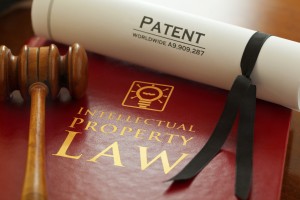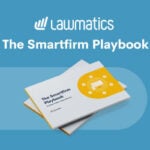The Patent Carpool
With the promise of additional 5G functionality for consumer vehicles comes a concomitant focus in the IP world on having a workable 5G patent licensing regime for automakers.
 Maybe they should call it 500G instead of 5G, considering that it can be 100 times faster than plain ol’ 4G at peak speeds. But, even with its current moniker, there is no doubt 5G technology is poised to revolutionize more than just the reception and performance of our phones. Speeding up society’s ability to stream YouTube or Insta-surf on phones may be among the least impressive contributions that 5G technology will deliver. Take, for example, the automotive industry. In 2021, GM announced a deal with AT&T that would result in “ connecting millions of GM vehicles to” AT&T’s nationwide 5G network, which the parties claimed would “improve the customer experience for existing services while laying the groundwork for the next wave of innovation including autonomous driving.” Ambitious goals, even as the prospect of fully autonomous cars still feels a bit off into the future, especially to the person sitting in traffic on the Staten Island Expressway for apparently no reason whatsoever. Still, the promise of 5G in cars and trucks remains substantial, with articles laying out 11(!) benefits of the enhanced communication technology available for review and further discussion with those who like discussing these types of things among themselves.
Maybe they should call it 500G instead of 5G, considering that it can be 100 times faster than plain ol’ 4G at peak speeds. But, even with its current moniker, there is no doubt 5G technology is poised to revolutionize more than just the reception and performance of our phones. Speeding up society’s ability to stream YouTube or Insta-surf on phones may be among the least impressive contributions that 5G technology will deliver. Take, for example, the automotive industry. In 2021, GM announced a deal with AT&T that would result in “ connecting millions of GM vehicles to” AT&T’s nationwide 5G network, which the parties claimed would “improve the customer experience for existing services while laying the groundwork for the next wave of innovation including autonomous driving.” Ambitious goals, even as the prospect of fully autonomous cars still feels a bit off into the future, especially to the person sitting in traffic on the Staten Island Expressway for apparently no reason whatsoever. Still, the promise of 5G in cars and trucks remains substantial, with articles laying out 11(!) benefits of the enhanced communication technology available for review and further discussion with those who like discussing these types of things among themselves.
For now, however, the typical American vehicle owner has probably not yet seen much benefit from 5G tech’s availability. Yes, the ability to connect your phone via Android Auto or Apple Airplay have made standbys like listening to the radio in your car an obsolete experience, but there is still a long way to go in terms of seeing real concrete benefit from 5G’s rollout in vehicles. That may be changing, with GM, Mercedes-Benz, and similar companies starting to look at alternatives to “smartphone mirroring” in favor of bespoke infotainment systems running native apps on vehicle displays. The presence of 5G in such vehicles will be important in terms of ensuring a smooth customer experience using those apps. At bottom, carmakers will be looking to generate additional revenue by taking more control over the digital dashboard real estate.
With the promise of additional 5G functionality for consumer vehicles comes a concomitant focus in the IP world on having a workable 5G patent licensing regime for automakers. To date, over two dozen automakers have committed to incorporating 5G in their vehicles, with some forecasts estimating that half or more of new vehicles will be 5G equipped over the next 5 years. It is no surprise, therefore, that leading 5G patent owners are keen to recoup their investments in developing and patenting 5G innovation. To that end, the leading automotive patent pool, Avanci, recently announced the launch of its “5G automotive licensing program,” bringing together 58 5G licensors and offering a license that “covers all 5G, 4G, 3G and 2G standard essential patents of the participating licensors, including cellular vehicle to everything (C-V2X) technology.” In short, while an Avanci license would not eliminate all exposure to 5G patent assertion for automakers, it does promise to take care of a lot of that exposure in one fell swoop. Assuming, of course, that automakers will be willing to pay the published Avanci license rate, which currently stands at at a discounted $29/vehicle, but only if the license is “signed before the later of February 16, 2024” or the “first sale of 5G connected vehicle” by any given automaker. Failure to jump on the early bird special will see licensees having to pay a $32/vehicle rate. In an era of $100-plus oil changes, that amount seems reasonable to at least this untrained eye.

LawPay Pro Offers Upgraded Time And Billing Essentials
In an interesting twist, the first announced Avanci 5G licensee is Mercedes-Benz, which was one of the last carmakers to sign a license in Avanci’s prior 4G licensing program. Driving the German carmaker’s decision to take an early license is the fact that Mercedes is ready to launch the sale of 5G-equipped vehicles in its native market, coupled with its broader commitment to roll-out advanced vehicles worldwide as quickly as possible. It is not unreasonable to expect announcements of other licensees in short order, considering the market penetration Avanci achieved, after much time and effort, as a 4G licensor.
At the same time, just because Avanci was able to launch with the announcement of a high-profile initial licensee does not mean that it will have a smooth road to licensing the two dozen or so other automakers promising to release 5G-equipped vehicles over the next few years. Still, building on the success of its 4G licensing program with automakers seems a reasonable prospect, considering Avanci will be bringing the lessons learned from its prior discussions with each automaker to bear on the 5G negotiations it has likely started in earnest. In one reported example, Japanese automakers were apparently 4G holdouts for a long while as to Avanci’s entreaties, based on the idea that it was the responsibility of their component suppliers to deliver already-licensed parts — rather than the responsibility of the automaker itself to negotiate a patent license for connected car technology. With that hurdle eventually overcome by Avanci in the 4G context, it will be interesting to see what positions holdouts take in the upcoming 5G discussions.
Ultimately, it is hard to disagree with the Antitrust Division of the DOJ’s assessment that Avanci’s “proposed 5G Platform may help to integrate emerging 5G technologies into vehicles faster, with less risk and less cost,” thus leading to better experiences for American drivers and passengers. Whether the benefits come in the form of better safety, or improved communication, or even by obviating for the driver to control the vehicle altogether, there is no doubt that a future historical record of innovation in the automotive industry will include a chapter on 5G’s impact. How quickly we get to that future may well depend in some measure on the success of Avanci’s patent licensing efforts over the coming years. We know that at least one car company sees the value in a license to Avanci’s 5G portfolio. Which others will join Mercedes in the Avanci patent carpool and how soon?
Please feel free to send comments or questions to me at gkroub@kskiplaw.com or via Twitter: @gkroub. Any topic suggestions or thoughts are most welcome.
Sponsored

How Generative AI Is Disrupting Law Firm Billing Practices

How to Achieve Quicker, More Valuable Case Settlements with Minimal Effort: A Guide for Personal Injury Lawyers

InterAction+ Brings Power Of CRM Software To Law Firms Of All Sizes

How to Achieve Quicker, More Valuable Case Settlements with Minimal Effort: A Guide for Personal Injury Lawyers
Gaston Kroub lives in Brooklyn and is a founding partner of Kroub, Silbersher & Kolmykov PLLC, an intellectual property litigation boutique, and Markman Advisors LLC, a leading consultancy on patent issues for the investment community. Gaston’s practice focuses on intellectual property litigation and related counseling, with a strong focus on patent matters. You can reach him at gkroub@kskiplaw.com or follow him on Twitter: @gkroub.
Sponsored

LawPay Pro Offers Upgraded Time And Billing Essentials








